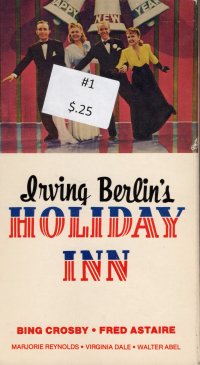 When it comes time to re-watch the movies featuring White Christmas, I must watch them in order: This film and White Christmas. Of the two, I like this one better. I mean, face it: Danny Kaye, the co-star in White Christmas, is no Fred Astaire. Full disclosure: I also own and enjoy A Couple of Song and Dance Men, their 1976 LP.
When it comes time to re-watch the movies featuring White Christmas, I must watch them in order: This film and White Christmas. Of the two, I like this one better. I mean, face it: Danny Kaye, the co-star in White Christmas, is no Fred Astaire. Full disclosure: I also own and enjoy A Couple of Song and Dance Men, their 1976 LP.
On Christmas Eve, a song-and-dance troupe is about to break up. Joe Hardy (Bing Crosby) is set to wed Lila (Virginia Dale) and move to a farm in Connecticut, but unbeknownst to him, she has decided she wants to keep singing and dancing and to marry their partner Ted Hanover (Astaire). Hardy moves to the farm and spends a year as a gentleman farmer in a humorous montage, but decides it’s too much work. So he decides to open an inn–a club more than an actual inn–which is only open on holidays. He comes to New York on Christmas Eve to hunt for talent, and his former booking agent passes this information to a part-time florist, Linda Mason (Marjorie Reynolds) who auditions with Hardy at the Holiday Inn and joins him for the show.
However, on New Year’s Eve, opening night, Lila elopes with a Texas millionaire, and an intoxicated Ted comes to Holiday Inn. A humorous dance routine ensues with Linda keeping him on his feet in the spotlight, and everyone raves about his new partner–but he doesn’t know who she is. He and his agent vow to find out who she is whilst Joe tries to keep her identity a secret. Hijinks and musical numbers ensue until Ted and his agent discover her identity on Independence Day, when Hollywood men are in the audience hoping to scope out Ted with his new partner for picture. Linda breaks her engagement with Joe because he doesn’t trust her and goes to Hollywood with Ted, leaving Joe alone again. But at the prodding of his housekeeper, Joe goes to California to win her back.
Alright, alright, alright. I cannot deny that this is a musical with song-and-dance numbers with various holiday songs, including two renditions of “White Christmas”. But it’s Bing Crosby and Fred Astaire, so it’s worthwhile. And as I mentioned, I watch it almost every Christmas season.
The film has come under fire in certain quarters because one of the subterfuges to hiding Linda from Ted is to perform a tribute to Abraham Lincoln in black face. Which is verboten now, but in reality, it’s only makeup, and the song and dance number does not look down on black people–it makes them sound grateful for the man who signed the Emancipation Proclamation. Although the more modern we get, perhaps that’s verbotener. And the housekeeper at the Holiday Inn is a black woman with two children, and her character is of the black housekeeper type. Which I chose to see her as an individual and not of a type and, again, the film does not look down on her nor black people in general, but once you start dealing with “types” you’re open to inchoate stochastic racism in the ether, which I didn’t find in the number, the housekeeper nor her children, but I am likely an old white racist. So there you go. I can watch old movies without high dudgeon anyway.
But enough about all that. Let’s talk about Marjorie Reynolds, who played Linda Mason.
Holy cats, she was radiant even in this black-and-white film.
She was a child actress in the 1920s, did films from the late 30s to the 50s, and then appeared on television up into the 1960s. She did not do the actual vocals in this film, but I forgive her.
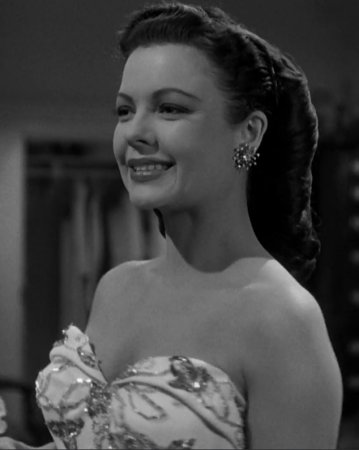
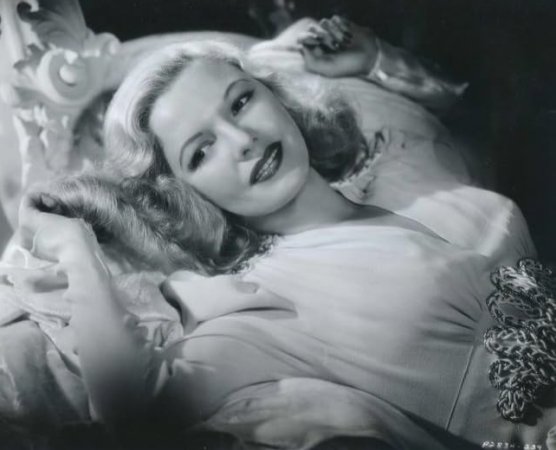
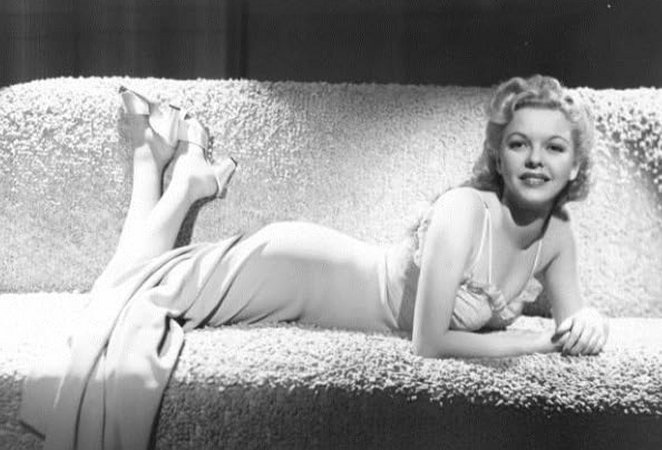
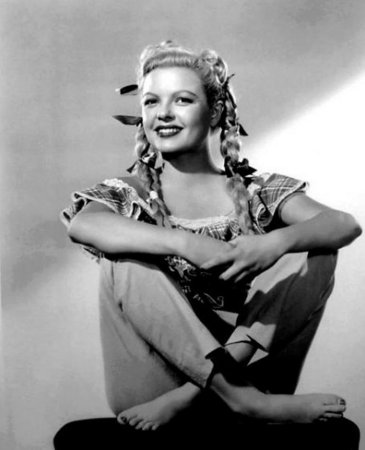
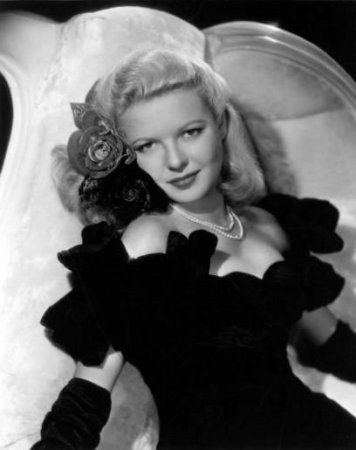
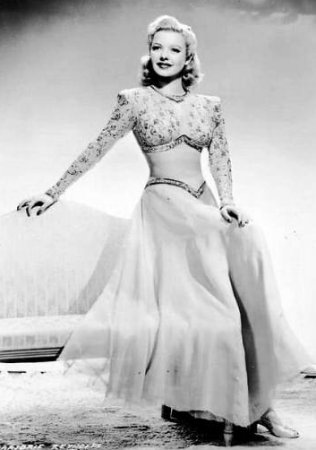

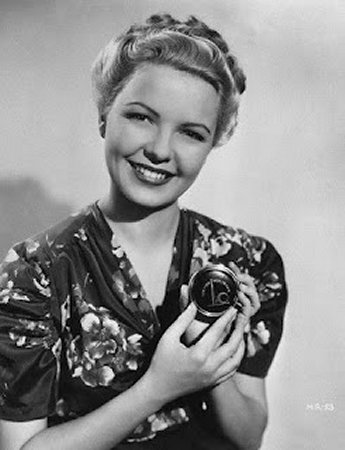
None of these actually capture the incandescence of her smile.


